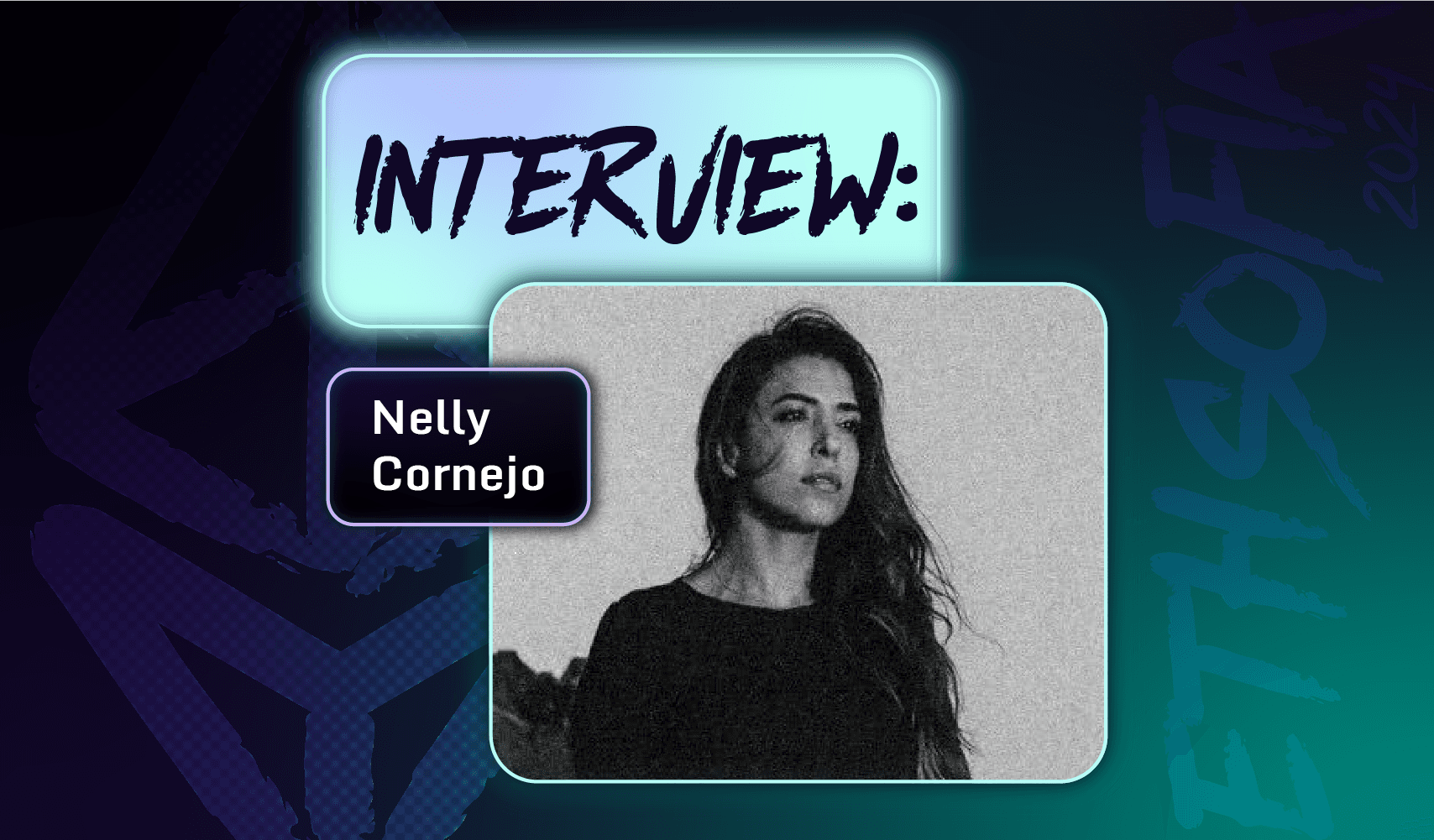Aug 12, 2024
Ingo Rübe: Bringing Real-World Trust and Privacy to Digital Identity




As you know, we recently launched a series of interviews with the speakers of ETHSofia 2024 to help you grasp their expertise, experience, and crypto journey. Check them out to discover what inspired and motivated them to join the inaugural edition of ETHSofia. After kicking this initiative off by interviewing Krum Pashov, we are happy to share our conversation with Ingo Rübe, Founder of KILT Protocol.
KILT Protocol aims to replicate the privacy and control of physical identity in the digital world. Can you delve deeper into the technical foundations that enable KILT to achieve this, particularly the role of decentralized identifiers (DIDs) and verifiable credentials?
[Digital] identity consists of two components: decentralized identifiers (DIDs) and verifiable credentials (VCs). A DID is like your digital fingerprint. To this DID you can add credentials to build your digital decentralized identity. These credentials can be stored on your device, under your control. So you decide what, to whom and when to reveal your identity.
Identity in the physical world is very decentralized. No one can take away your face or your fingerprint, but identity in the digital world is broken. Users cannot control their digital identity as it’s owned by centralized monopolies.
KILT brings the traditional process of trust in real-world credentials (passport, driver’s license) to the digital world, while keeping data private and in possession of its owner.
How do decentralized identifiers (DIDs) transform digital privacy, and what are the key benefits and potential risks associated with their widespread adoption? How does KILT Protocol mitigate these risks?
A DID is someone’s digital fingerprint, and is recognized as an industry standard for decentralized identity by the The World Wide Web Consortium (W3C), who develop standards and guidelines for the web. Anyone wanting to handle digital privacy in a decentralized and digital way needs a DID.
Your DID and verifiable credentials are not stored in a centralized database, they are stored on your device, so only you can access them and decide when to share. The credentials are anchored on the KILT blockchain so entities authorized by you can check their validity.
What strategies does KILT Protocol employ to integrate its digital identity solutions with existing enterprise and consumer systems? Can you provide examples of successful integrations and their outcomes?
Our biggest integration is our partnership with Deloitte. Deloitte takes their traditional business of KYC / KYB (Know Your Customer / Business) attestations and offers a decentralized alternative, “Built on KILT”.
Increasingly, regulations require businesses or services to implement KYC or KYB processes. Typically, the user has to go through a lengthy process for each individual registration, before receiving a credential that is not transferable. In addition to being inefficient, this process means that private and personal data is submitted and stored across multiple platforms and databases, putting consumer data privacy at risk.
Building on their trusted reputation, Deloitte has transformed this process by issuing reusable KYC and KYB credentials using KILT blockchain technology.
Once the user obtains their credential, they will be able to reuse it across multiple services, while retaining control over when and where to share their personal information.
We have two more enterprise and government integrations. One with Axel Springer for a decentralized login, similar to the login with Facebook or Google button but in a decentralized way. The other one is with dena, the German Energy Agency. It supports the federal government in achieving its energy and climate policy goals, and involves the project DIVE – Digital Identities as Trust Anchors in the Energy System. KILT is providing decentralized machine identities registered on the KILT blockchain and showing how blockchain technology can be used inside a highly-regulated environment.
Governance is crucial for decentralized systems. How does KILT Protocol ensure a fair and effective governance model that balances decentralization with operational efficiency?
KILT is a fully decentralized network where everyone can contribute to the protocol, chain, community, content, and more. This inclusive approach extends to governance as well. Any member of the community can make a proposal to improve KILT. These proposals are then voted on by the community, ensuring that all decisions are made collectively. If a proposal is approved, the upgrade will be enacted by the blockchain.
As the founder and CEO, what is your long-term vision for KILT Protocol, and what milestones do you hope to achieve in the next five to ten years to realize this vision?
I'm excited about the future of blockchain, particularly within the Polkadot ecosystem and the new JAM project. KILT, as part of the Polkadot network, is set to benefit significantly from the upcoming changes. I believe Polkadot will play a pivotal role in driving blockchain mass adoption across enterprises, governments, and consumers alike. This growth will positively impact all projects and services within the Polkadot ecosystem, including KILT. We eagerly anticipate being part of this new phase of widespread adoption.
Why did you decide to join ETHSofia? What inspired you and what do you expect from the inaugural edition of the event?
Joining ETHSofia presents a valuable opportunity to engage within the broader blockchain community, with a focus on developments in both Ethereum and Polkadot. The event's mix of conference sessions and a hackathon inspired us, as it creates opportunities for innovative ideas and cross-chain collaboration. With this being the inaugural edition, we’re looking forward to seeing what insights and connections might emerge. We expect to gain fresh perspectives and contribute to meaningful discussions in this dynamic space.
As you know, we recently launched a series of interviews with the speakers of ETHSofia 2024 to help you grasp their expertise, experience, and crypto journey. Check them out to discover what inspired and motivated them to join the inaugural edition of ETHSofia. After kicking this initiative off by interviewing Krum Pashov, we are happy to share our conversation with Ingo Rübe, Founder of KILT Protocol.
KILT Protocol aims to replicate the privacy and control of physical identity in the digital world. Can you delve deeper into the technical foundations that enable KILT to achieve this, particularly the role of decentralized identifiers (DIDs) and verifiable credentials?
[Digital] identity consists of two components: decentralized identifiers (DIDs) and verifiable credentials (VCs). A DID is like your digital fingerprint. To this DID you can add credentials to build your digital decentralized identity. These credentials can be stored on your device, under your control. So you decide what, to whom and when to reveal your identity.
Identity in the physical world is very decentralized. No one can take away your face or your fingerprint, but identity in the digital world is broken. Users cannot control their digital identity as it’s owned by centralized monopolies.
KILT brings the traditional process of trust in real-world credentials (passport, driver’s license) to the digital world, while keeping data private and in possession of its owner.
How do decentralized identifiers (DIDs) transform digital privacy, and what are the key benefits and potential risks associated with their widespread adoption? How does KILT Protocol mitigate these risks?
A DID is someone’s digital fingerprint, and is recognized as an industry standard for decentralized identity by the The World Wide Web Consortium (W3C), who develop standards and guidelines for the web. Anyone wanting to handle digital privacy in a decentralized and digital way needs a DID.
Your DID and verifiable credentials are not stored in a centralized database, they are stored on your device, so only you can access them and decide when to share. The credentials are anchored on the KILT blockchain so entities authorized by you can check their validity.
What strategies does KILT Protocol employ to integrate its digital identity solutions with existing enterprise and consumer systems? Can you provide examples of successful integrations and their outcomes?
Our biggest integration is our partnership with Deloitte. Deloitte takes their traditional business of KYC / KYB (Know Your Customer / Business) attestations and offers a decentralized alternative, “Built on KILT”.
Increasingly, regulations require businesses or services to implement KYC or KYB processes. Typically, the user has to go through a lengthy process for each individual registration, before receiving a credential that is not transferable. In addition to being inefficient, this process means that private and personal data is submitted and stored across multiple platforms and databases, putting consumer data privacy at risk.
Building on their trusted reputation, Deloitte has transformed this process by issuing reusable KYC and KYB credentials using KILT blockchain technology.
Once the user obtains their credential, they will be able to reuse it across multiple services, while retaining control over when and where to share their personal information.
We have two more enterprise and government integrations. One with Axel Springer for a decentralized login, similar to the login with Facebook or Google button but in a decentralized way. The other one is with dena, the German Energy Agency. It supports the federal government in achieving its energy and climate policy goals, and involves the project DIVE – Digital Identities as Trust Anchors in the Energy System. KILT is providing decentralized machine identities registered on the KILT blockchain and showing how blockchain technology can be used inside a highly-regulated environment.
Governance is crucial for decentralized systems. How does KILT Protocol ensure a fair and effective governance model that balances decentralization with operational efficiency?
KILT is a fully decentralized network where everyone can contribute to the protocol, chain, community, content, and more. This inclusive approach extends to governance as well. Any member of the community can make a proposal to improve KILT. These proposals are then voted on by the community, ensuring that all decisions are made collectively. If a proposal is approved, the upgrade will be enacted by the blockchain.
As the founder and CEO, what is your long-term vision for KILT Protocol, and what milestones do you hope to achieve in the next five to ten years to realize this vision?
I'm excited about the future of blockchain, particularly within the Polkadot ecosystem and the new JAM project. KILT, as part of the Polkadot network, is set to benefit significantly from the upcoming changes. I believe Polkadot will play a pivotal role in driving blockchain mass adoption across enterprises, governments, and consumers alike. This growth will positively impact all projects and services within the Polkadot ecosystem, including KILT. We eagerly anticipate being part of this new phase of widespread adoption.
Why did you decide to join ETHSofia? What inspired you and what do you expect from the inaugural edition of the event?
Joining ETHSofia presents a valuable opportunity to engage within the broader blockchain community, with a focus on developments in both Ethereum and Polkadot. The event's mix of conference sessions and a hackathon inspired us, as it creates opportunities for innovative ideas and cross-chain collaboration. With this being the inaugural edition, we’re looking forward to seeing what insights and connections might emerge. We expect to gain fresh perspectives and contribute to meaningful discussions in this dynamic space.
Follow ETHSofia on X and LinkedIn, join our official Telegram group, and subscribe to our newsletter to get the latest news!


@ 2025 ETHSofia. All rights reserved.


@ 2025 ETHSofia. All rights reserved.


@ 2025 ETHSofia. All rights reserved.


@ 2025 ETHSofia. All rights reserved.



